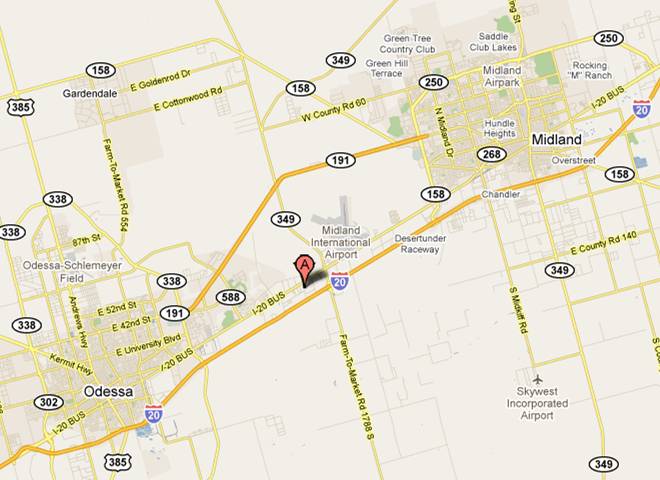After residents report green and yellow-colored well water near an oilfield company’s operation in the spring of 2009, the U.S. Environmental Protection Agency (EPA) investigated and formally designated an area in Midland as a national Superfund site when the presence of the highly toxic solvent hexavalent chromium was found in groundwater supplies. The Superfund list is made up of sites so contaminated that they require long-term, complex and expensive cleanups.
These reports from residents led to testing that found that 46 of the more than 230 wells in the area had levels of the toxin in them that were above safety limits. Filtration systems have been provided to the owners of the contaminated wells.
Breathing airborne hexavalent chromium may cause lung cancer, can irritate or damage the nose, throat and lungs, and can also damage eyes or skin. Exposure to hexavalent chromium in drinking water can lead to an increased risk of stomach tumors.
While Texas has been at war with the EPA over the last couple of years, cleaning up sites that pose such a major threat to public health is one of the most vital aspects of the agency’s mission, and I for one, would not like to see the agency hobbled so that they can no longer protect communities from dangers posed by chemical contamination.
The Texas Commission on Environmental Quality first confirmed hexavalent chromium at more than 50 times the acceptable federal levels in early April 2009 in a well near West County Road 112.
Since then, 234 water wells have been tested by the TCEQ; chromium was found at above safe levels in 34 of them. The plume extends 1.25 miles from the center of the site and it covers about 260 acres, according to the EPA.
UPDATE:
According to an EPA document, the Site consists of a contaminated ground water plume originating from an unidentified source. The contaminant plume is located along County Road 1290, between Interstate 20 to the south, and Interstate Business 20 to the north. The Trinity and Ogallala aquifer is the only ground water source for drinking water in the site area. The water table has been reported at depths as shallow as 30 feet below the ground surface and the base of the aquifer is approximately 95 – 105 feet below ground surface. The Triassic red beds form the base of the aquifer. Ground water flow in the aquifer is expected to be generally to the south-southeast.
As part of the National Priorities List, the EPA will take the lead at the site and federal funds will be available for identifying the source of contamination and providing a method of cleanup.
Until a source of contamination is identified, EPA officials said in a release sent out Tuesday that the plume of contamination will continue to grow and affect additional water wells.
City of Midland officials have said, at this time, the city is unable to provide water to residents in that area. A group is working to put together a water district that would serve county residents, including those in the contaminated area, but a source of water has yet to be identified.
If a water source were available, EPA staff have said they could consider funding pipelines as part of the remediation process.
Related Articles
- New EPA Recs for Monitoring Chromium-6 in Water (abcnews.go.com)
- Worker Exposure to Hexavalent Chromium: Public Citizen Health Research Group and PACE International v. Chao
- Industry Negotiates Settlement Agreement with OSHA and Public Citizen on Hexavalent Chromium Workplace Exposure Rule – OSHA’s Final Rule



